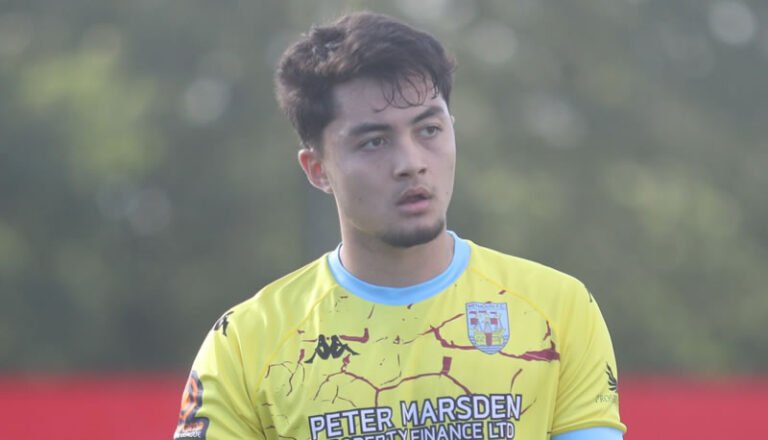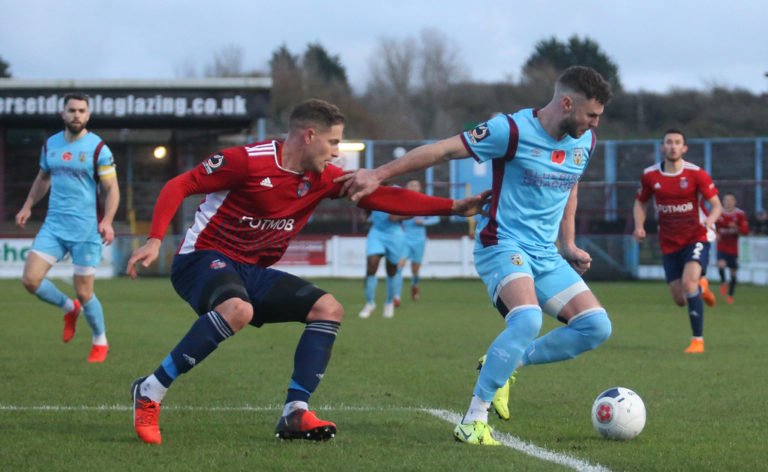Three men, Mark Frowde, Robert Bennett, and Jimmy Newport took a stroll along Weymouth beach in the Summer of 1890, one which was to prove important for the future of the seaside town.
As many discussions taken along the beach will have since, the chatter turned towards the subject football. Frowde, Bennett, and Newport themselves were sportsmen, footballers specifically, Frowde in particular had always been a keen sportsman, having played rugby at school in Exeter and football for Devon, as well as joining the football club at Charlton Oaks and playing for the St James team in Plymouth. As their discussions flowed, the three strived to give the town they lived and worked in a place in the footballing world.
They commented to each other on the amount of young men, like themselves, who were playing football on the beach. The flat and open space on Weymouth beach provided the perfect location for a kick-about; there were very few facilities for having an unorganised game of football in Weymouth in the late 20th century, the only football teams who did exist in the area at the time were connected to local businesses or churches. Between them that day, Frowde, Bennett and Newport made it their mission to see that the town would have a football team who represented it.
Frowde had been playing for Plymouth before employment opportunities brought him to Weymouth; Bennett and Newport were already playing for local side Weymouth Rovers. Their discussions continued to escalate over the coming week and the three of them shortlisted other potential sportsmen for their potential new club, by 26th August 1890 a meeting had been organised at Cook’s Assembly Rooms in the town.
The Southern Times wrote at the time, “A meeting was convened at Cook’s Assembly-Room on Thursday evening for the purpose of considering the availability of forming a Weymouth Football Club. The chair was taken by Mr. Smith, the number present was about twenty. In a short concise speech, the Chairman mentioned the object of the meeting, stating that for a considerate time past a feeling had been prevalent that the town of Weymouth should have a team to represent them in at least one of the cup competitions.
“Tizard, Denning, and Frowde having endorsed the Chairman’s remarks, it was unanimously carried that a club should be formed and called the Weymouth Football Club, to play under the Association rules. The entrance fee for same to be 2d, with a monthly subscription of 6d.
“A letter from Mr Pells was then read granting the use of a field (at Bincleaves) for matches. Mr A Dennis (Mayor), was selected President amidst great applause, and a hope was expressed that the gantry and tradespeople of the neighbourhood would patronise the club and therefore make it worthy of the ancient town of Weymouth.”
With the club formed and a pitch agreed, the club needed their colours. Fred Pates, who had been contracted by the town council to re-gild and repaint the Jubilee Clock on the Weymouth seafront, suggested that the club’s colours should be influenced by those of the clock tower, terracotta and blue.
The club decided against playing at Bincleaves they were offered in the original meeting and took up a second offer of playing at a pitch in Lodmoor instead, the pitch at Bincleaves was used for their second team or if the Lodmoor pitch became unplayable.

Mr Popes XI’s provided the first opposition for the newly formed Weymouth Football Club, a side put together by Mr Pope of Dorchester Brewery. It took Weymouth 40 minutes to score their first ever goal, club founder Jimmy Newport opening the scoring before local harbour worker Robert Grant doubled the Terras lead to secure the 2-0 victory.
Despite only being able to play friendlies and in the Dorset Junior Cup, Weymouth still attracted 28 men to a club organised trial match, this ensured the club had the numbers to run the first team and a second XI. Weymouth managed to win 6 and draw 2 of the 15 friendlies they played in their first season, quite an achievement when it is noted that many of the sides they faced were senior and more experienced teams. They even managed to defeat their neighbours Dorchester 2-1 in an away fixture, despite only being able to field 10 players.
The newfound club also found success in the Dorset Junior Cup, defeating Poole in the final, but their cup victory was not without controversy.
Reports at the time suggest that the fixture had drawn a lot of attention locally and that the crowd was packed at the Wareham Recreation Ground.
15 minutes into the game, Jimmy Newport fired goalwards and the referee, Dorset County secretary Mr. S. E. Symes, and his two umpires adjudged that the ball to have gone under the crossbar and awarded a goal; the crossbar at the time was nothing more than a rope tied between two upright posts. The Poole players accepted the decision of the referee but a small section of the Poole support verbally let him know that they disagreed with the decision.
Once the game had restarted, supporters of Poole entered the field of play and surrounded Mr Symes, who eventually had to take refuge in the Wareham Recreation pavilion until the police arrived to disperse the now growing crowd. The crowd were demanding a refund of their 6d admission for the game which had now been abandoned, however it was gleaned that the Wareham officials had already disappeared with the money. The situation was only calmed after 2 hours when it was promised that a substantial donation to Poole Hospital would be made in lieu of any refunds.
Weymouth players were praised at a subsequent FA hearing for their efforts in escorting the referee from the pitch during the trouble; the Poole players were absolved of any blame related to the disturbances, however the Dorset FA Committee found the Poole club had failed to control their supporters and thus were at fault for the abandonment.
Weymouth were to be awarded the Dorset Junior Cup in their first season, they were proving themselves to be worthy of the ancient town.





